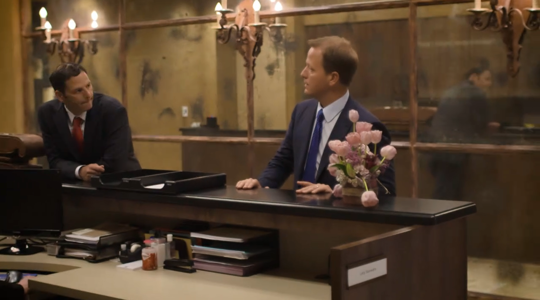Guardrail Injury Attorneys
Injured in a Guardrail Accident? Call Us at (888) 493-1629!
In June 2014, a whistleblower at Trinity Guardrail revealed that their line of guardrails would impale cars if they were struck head-on. They were initially designed to bend on impact like an accordion, but due to an unapproved design change, the guardrails turned into enormous spears instead—causing serious or fatal injuries to accident victims. Two wrongful deaths occurred within nine months.
Now, Trinity and other guardrail companies are facing one of the strongest personal injury law firms in the nation. Our legal team is holding them accountable for the mayhem and tragic deaths they’ve caused to save a few pennies.
Our team has gone toe-to-toe with the titans of different industries, winning billions of dollars in verdicts and settlements for our clients throughout the years. The records we’ve set nationwide remain unbroken. Companies like Trinity fear us for a good reason. Once we know an injustice has occurred, we won’t stop until our clients are set for life. All we need now is you. If you or a loved one’s car was impaled after striking a guardrail, speak with our firm as soon as possible. You deserve to have your story heard—even more importantly, you deserve to have your medical costs paid for by the company who hurt you.
Guardrail Accidents: What Happened & Why
When designed correctly, highway guardrails help reduce the impact of car accidents. They keep cars on the highway from crashing, but they also can slow cars down safely if hit head-on. When a motorist strikes the head of the guardrail, the whole rail is designed to fold like an accordion. Unfortunately, the manufacturer behind thousands of miles of guardrails nationwide, Trinity Industries, shortened the design of their product from five inches to four inches to save them around $50,000 a year.
The minor adjustment ended up having a horrifying effect: it allowed the head to lock on impact, turning the guardrail into an enormous spear. Within nine months, at least two people were killed when an ET-Plus guardrail pierced their vehicle. Dozens of lawsuits have been brought against the industry giant, beginning with a $663 million judgment from the government under the False Claims Act.
Plaintiffs are seeking damages against Trinity for their unsafe, fraudulent product. For answers regarding your case, read the information below. If you believe that your car accident was made worse due to the guardrail, speak with our attorneys.
Found Guilty of Lying to the Federal Government
The False Claims Act is a law that allows whistleblowers to sue companies for defrauding the U.S. government. A competitor named Joshua Harman realized that Trinity changed the design of their guardrail product without notifying the Federal Highway Administration—but continued to advertise their product as approved by the FHA. Their secret design change became the center of the lawsuit.
By October 2016 (two years after the False Claims Act verdict), Trinity was actively fighting over two dozen lawsuits. However, Trinity continues to deny that they are responsible for the injuries caused by their product. They’ve hired an army of the best corporate litigators in the country in their bid to protect their interests, insisting that their guardrails aren’t created to prevent tragedies from occurring.
That's when Arnold & Itkin decided to step in.
